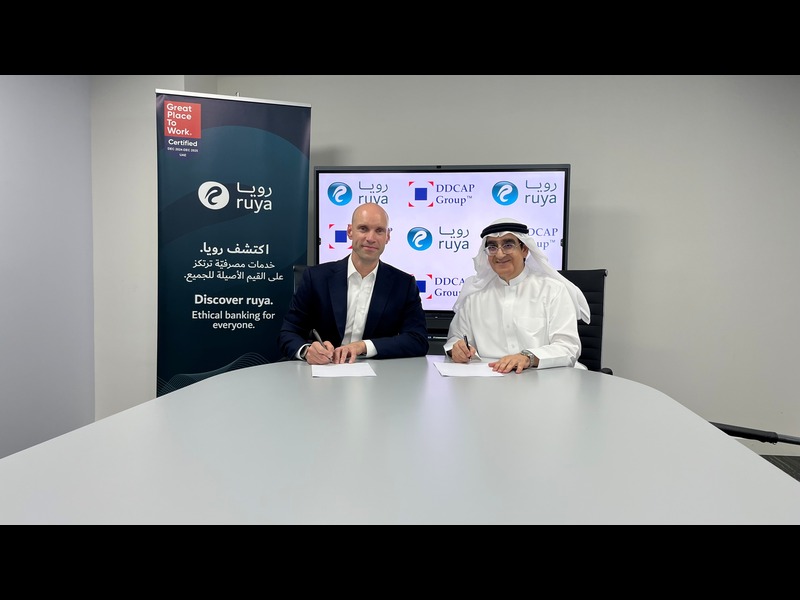Uber unveils Economic Impact Report for Saudi Arabia

Uber has unveiled the findings of its Economic Impact Report for the Kingdom of Saudi Arabia, highlighting the company’s contribution to the Kingdom’s economy and its role in transforming mobility, supporting local businesses, and enabling new earning opportunities in 2023, as well as over the past decade since entering the local market. The report, conducted by independent consultancy Public First, estimates that Uber contributed approximately US$293 million (SAR 1.1 billion) to the Saudi economy.
The findings were presented at an event attended by key stakeholders, industry leaders, and policymakers, including His Excellency the Vice Minister of Transport and Logistic Services and Acting President of the Transport General Authority, Dr. Rumaih Al-Rumaih. The event also featured a panel discussion on Uber’s impact in the Kingdom of Saudi Arabia, highlighting its role in enhancing connectivity, empowering entrepreneurs, and supporting the Kingdom’s digital transformation in alignment with Vision 2030.
Unlocking economic opportunities
As Uber marks a decade in the Kingdom of Saudi Arabia, the report reflects on the company’s journey and its growing impact. Flexible and reliable earning opportunities are at the heart of Uber’s model, allowing Saudi drivers to earn 42% more than their next best alternative. In 2023, Uber drivers collectively earned an additional US$72 million (SAR 270 million) through the platform, with nearly a quarter of them using app-based opportunities to start or grow a business. Furthermore, Uber’s flexibility was valued at US$106 million (SAR 400 million), reinforcing its role in offering drivers control over their schedules and financial independence.
Uber continues to be an enabler of Saudi Arabia’s booming hospitality and tourism sectors. By making travel easier for residents and visitors, the platform generated US$19.7 million (SAR 74 million) in additional value for the leisure economy and US$132 million (SAR 500 million) for the tourism industry in 2023. The report found that 69% of riders use Uber to explore new restaurants and cafés, and visitors from over 150 countries used the app while in the Kingdom.
Uber’s Wusool initiative, in partnership with the Human Resources Development Fund (HRDF), has provided Saudi women with over 20 million subsidised rides to work, accelerating progress towards Saudi Arabia’s female labour force participation goals.
Transforming mobility for consumers
With 88% of riders citing convenience and 90% prioritising safety, Uber has become an essential part of daily life in Saudi Arabia. Riders saved an estimated 2.5 million hours—equivalent to 285 years—by using Uber compared to their next best alternative. Additionally, 71% of riders found Uber to be the safest way to get home late at night, and 60% of Saudi women said it would be difficult to find a safe way to travel at night if options like Uber did not exist.
Over the past decade, Uber has introduced innovative features such as Women Preferred View, Uber Reserve, and Uber X-Share, promoting sustainability and shared mobility solutions. These initiatives align with Saudi Arabia’s ambition to foster a tech-driven, sustainable future and achieve carbon neutrality by 2060.
Since launching in 2014, Uber has adapted to meet the evolving needs of Saudi consumers and businesses. Key milestones include the introduction of Uber Reserve, integration with Saudi Arabian Railways (SAR), and the Women Preferred View feature, which has played a pivotal role in Saudi Arabia becoming Uber’s largest market for female drivers in the Middle East and Africa.
Commenting on the report’s findings, Youssef Abouseif, General Manager of Uber in Saudi Arabia, said:
“Over the past decade, Uber has helped shape modern mobility and created tangible economic opportunities for thousands of people across the Kingdom. This report reaffirms our commitment to supporting Saudi Arabia’s ambitious growth and innovation goals, in line with Vision 2030. We are grateful for the Kingdom’s continued leadership and vision driving Saudi Arabia’s economic diversification and technological advancement, and we look forward to continuing to be a trusted partner in the country’s future.”








